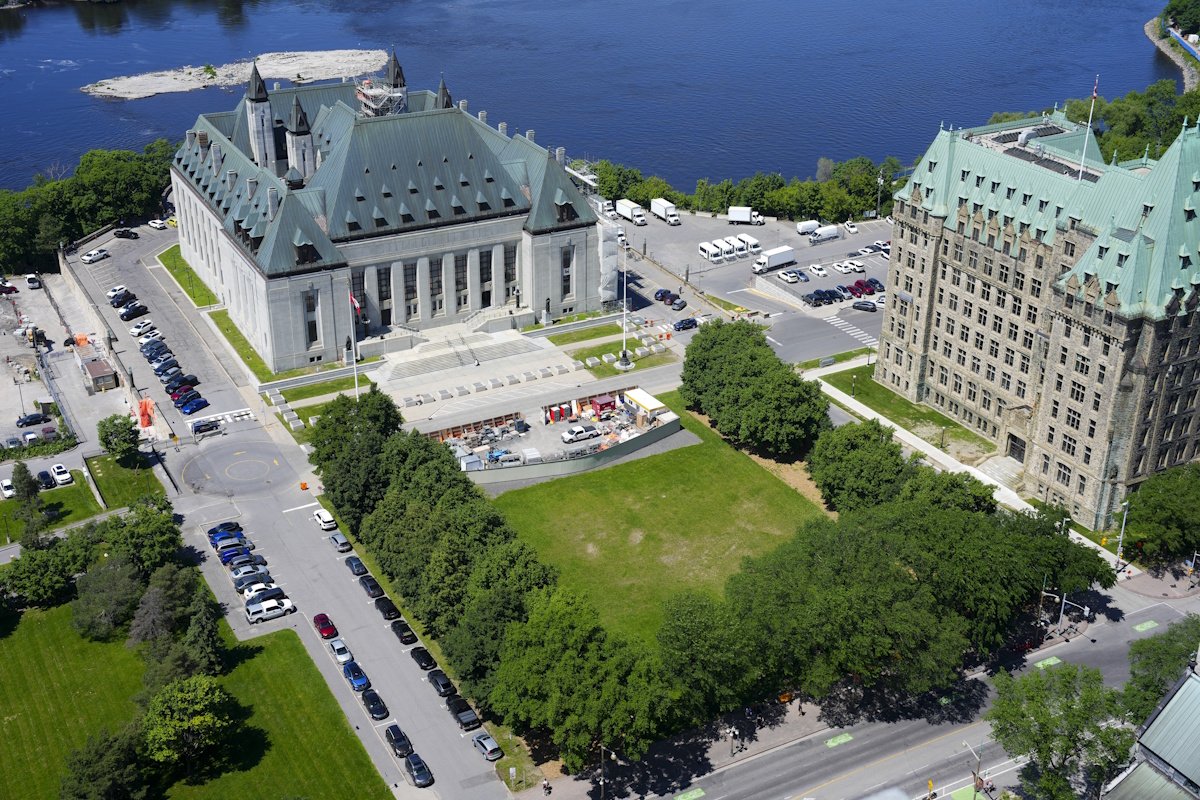The federal government is asking the Supreme Court of Canada to set limits around how provincial governments can override the Charter of Rights and Freedoms.
Ottawa brought forward the request in a factum filed at the court on Wednesday, as part of a landmark case on Quebec’s secularism law, known as Bill 21.
Quebec has invoked the notwithstanding clause of the Charter in its legislation.
The clause can be used by provinces to shield legislation from constitutional challenges, but in its filing, the federal government urged the court to set limits on how the notwithstanding clause can be invoked.
It argued repeated use of the clause amounts to “indirectly amending the Constitution,” and that courts should be able to rule on whether it may result in the "irreparable impairment" of Canadians' rights.
"The prolonged impossibility of exercising a right or freedom would, in practice, be tantamount to denying its very existence," the lawyers warned in the factum submitted Wednesday to the court.
In separate arguments filed Wednesday, Ontario and Alberta defended Quebec's pre-emptive use of the notwithstanding clause when it passed its 2019 secularism law. Bill 21 prohibits public sector workers in positions of authority, including teachers and judges, from wearing religious symbols on the job.
The two provinces said the clause is an essential part of the Canadian Constitution and should not be undermined by the country's top court.
Ontario "does not support Quebec’s decision to require citizens to remove religious symbols to serve the public or to receive public services," the province's attorney general wrote. "But that is a decision for the national assembly, and ultimately the voters of Quebec, to make for themselves."
Both provinces say the notwithstanding clause, Section 33 of the Charter, was fundamental to the negotiation of the 1982 Constitution and preserves the sovereignty of provincial legislatures.
"Section 33 was... a hard-fought and hard-won compromise," Alberta's factum reads. "Simply put, there would have been no Charter without (it)."
The Supreme Court has agreed to hear a legal challenge of Bill 21 brought by several groups that oppose the law, though a date for a hearing has not been set. Some of the appellants are asking the court to restrict the pre-emptive use of the notwithstanding clause, or to allow courts to declare a law violates constitutional rights, even if it is shielded by Section 33.
The federal government agrees that courts should be able to issue such declarations, which it says "would constitute an important source of information for the electorate" to judge the merits of a government's decision to invoke the notwithstanding clause.
However, Ottawa has not weighed in on the pre-emptive use of the notwithstanding clause, despite the fact that Prime Minister Mark Carney has said he opposes it.
Ontario and Alberta are supporting Quebec in its opposition to any limits on pre-emptive use of Section 33, which Ontario says would amount to amending the Constitution "by the back door."
The three provinces also oppose judicial declarations on rights violations, which Alberta says would turn the courts into "interest group(s) vying for the attention of voters in a political forum."
There are dozens of interveners in the Supreme Court case, including several provinces. Quebec filed its arguments last month.
Since Bill 21 was passed, other provinces have made more frequent use of Section 33. In 2023, the Saskatchewan government invoked the clause to pass a law requiring parental consent for students under 16 to use their preferred name or pronouns at school. Quebec has also invoked Section 33 to pass other legislation, including an overhaul of the province's language law.
Last month, the Saskatchewan Court of Appeal ruled that courts can issue declarations on rights violations in legislation that invokes the notwithstanding clause.
On Wednesday, Bloc Québécois Leader Yves-François Blanchet accused Carney of using the notwithstanding clause as a pretext to attack Quebec's approach to secularism.
"If you want to attack the fundamental values of Quebec and the national language of Quebec, say so and do it openly," he said.
This report by The Canadian Press was first published Sept. 17, 2025.
